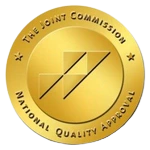The Benefits of Holistic Mental Health Treatment
Holistic mental health treatment is a whole-person approach to your emotional and psychological well-being.
Rather than focusing just on symptoms like anxiety, depression, or trauma, holistic care addresses the full spectrum of a person’s experience, including their physical health, emotional needs, social environment, and even spiritual connection.
The goal is to foster true healing by treating the root causes of distress and promoting balance across all areas of life.
Unlike more traditional methods that may rely heavily on medication or talk therapy alone, a holistic approach to mental health integrates multiple therapies and lifestyle interventions.
These include mindfulness, yoga, nutrition counseling, art therapy, and other practices designed to strengthen the connection between mind and body.
In Tennessee, particularly in areas like Murfreesboro, Nashville, and surrounding communities, more individuals are seeking this kind of comprehensive mental health support.
Whether you’re navigating a mental health condition or you’re looking to deepen your sense of wellness, holistic therapy can offer a powerful path forward.
At Tulip Hill Recovery, we specialize in holistic mental health treatment that is tailored to each person’s needs.
Our programs blend traditional and integrative methods to support lasting healing and growth.
In this guide, we’ll explore the top benefits of choosing a holistic approach for mental health care in Tennessee.

What Is a Holistic Approach to Mental Health?
A holistic mental health approach views each person as a whole being and recognizes that mental wellness is deeply connected to physical, emotional, social, and spiritual well-being.
Rather than treating symptoms in isolation, holistic care aims to uncover any underlying causes of distress and restore balance across all areas of life.
In holistic mental health treatment, healing is not just about reducing anxiety or managing depression—it’s about improving quality of life on every level.
This may include supporting physical health through nutrition, encouraging emotional expression through creative outlets, fostering mindfulness, and building stronger social and spiritual connections.
Common holistic practices include yoga, mindfulness meditation, art therapy, nutrition counseling, ecotherapy, and acupuncture. These therapies can be especially effective when combined with traditional methods like counseling and psychotherapy.
Holistic care is also frequently used in dual diagnosis treatment, where individuals face both a mental health disorder and a substance use disorder. Addressing the full range of a person’s needs improves outcomes and builds a more sustainable foundation for recovery.
Why Holistic Treatment Is Gaining Popularity in Tennessee
In communities across Tennessee, including Nashville and Murfreesboro, more people are looking to holistic mental health treatment as a potential alternative or complement to conventional care.
Many individuals have found that standard talk therapy or medication alone doesn’t fully address the complexity of their mental health challenges.
As awareness grows around mental health, so does the demand for personalized, integrative treatment options that honor the connection between mind, body, and environment.
Holistic therapy fills this gap by offering tools that promote deeper healing and empower individuals to take an active role in their recovery.
In Tennessee, where community, faith, and nature play central roles in people’s lives, the holistic approach to mental health feels especially relevant.
It provides a flexible, compassionate framework for people who are seeking more than symptom relief—they’re looking for lasting wellness.
At Tulip Hill Recovery, we’ve seen firsthand how this approach resonates with individuals across the state who are ready for a deeper kind of healing.
Benefits of Holistic Therapy for Mental Health
Holistic mental health treatment takes a broad approach to healing. It holistically addresses physical, emotional, spiritual, and social aspects rather than just symptoms.
Some of the benefits include the following:
- Understanding yourself: Holistic therapy explores various life aspects (thoughts, feelings, physical health, spirituality, social connections) to enhance self-awareness.
- Addressing underlying causes: Unlike traditional therapies, holistic therapy focuses on identifying and addressing the root causes of mental health issues for lasting relief.
- Long-term management: Holistic therapy equips individuals with strategies for sustainable mental health management, including coping skills, trigger avoidance, and goal achievement.
- Coping mechanisms: By examining and addressing unhelpful emotions, holistic therapy teaches healthier coping mechanisms for stress, depression, anxiety, etc.
- Inner resources: Holistic therapy helps individuals tap into their inner strengths and resources, fostering resilience, courage, and hope in managing mental health challenges.
Take the next step to your recovery.
7 Benefits of Holistic Therapy in Mental Health Counseling
A holistic approach to mental health focuses on treating the whole person, not just the diagnosis.
By incorporating physical, emotional, and spiritual well-being into treatment, clients often experience more meaningful and lasting results.
Below are the top 7 benefits of holistic therapy in mental health counseling, especially for those seeking care in Nashville, Murfreesboro, and throughout Tennessee.
-
1. Addresses the Deeper Root Causes of Mental Health Issues
One of the key advantages of holistic therapy is its focus on uncovering the underlying causes of mental health challenges.
Traditional therapy may concentrate on managing symptoms, but holistic approaches aim to explore what’s beneath the surface, such as unresolved trauma, chronic stress, or environmental and lifestyle factors.
For example, a client in Murfreesboro struggling with anxiety might learn through holistic counseling that much of their distress stems from unprocessed childhood trauma.
Incorporating trauma-informed yoga, talk therapy, and mindfulness allows them to process those experiences in a safe and structured way.
By working at the root level, holistic treatment creates the foundation for true healing and not just temporary relief.
-
2. Improves Emotional Regulation and Coping Skills
Holistic therapy integrates techniques like breathwork, meditation, and mindfulness, which are proven to enhance emotional regulation.
These practices calm the nervous system and teach individuals how to pause and respond, rather than react, to stress, anger, or sadness.
This approach is especially powerful for individuals navigating dual diagnosis, where emotional instability often contributes to substance use.
Instead of turning to drugs or alcohol, clients learn healthy, sustainable coping strategies that can support them long after treatment ends.
Residents in the greater Nashville area often report how these tools help them manage high-stress lifestyles without reverting to unhealthy patterns.
-
3. Boosts Physical Health Alongside Mental Wellness
The mind-body connection is a central concept in holistic mental health treatment. Many clients experience physical symptoms alongside emotional distress, such as insomnia, digestive issues, chronic fatigue, or headaches.
Through holistic care, individuals are supported with nutritional therapy, exercise, sleep hygiene, and stress management tools.
For example, a client in a Tennessee-based program might benefit from a nutrition plan designed to stabilize mood or a daily yoga practice that improves both physical and emotional strength.
By caring for the body, holistic therapy promotes better brain function, improves energy levels, and helps people feel stronger and more resilient in their day-to-day lives.
-
4. Enhances Self-Awareness and Personal Growth
Holistic mental health counseling encourages self-exploration through creative and reflective practices such as art therapy, journaling, and guided meditation.
These tools help individuals uncover deep-rooted beliefs, emotions, and habits that may be influencing their mental health.
Clients often describe gaining new insights into themselves, their purpose, and the patterns that have held them back. For some, this becomes a gateway to spiritual growth; for others, it simply means reconnecting with who they are outside of their mental health condition.
This self-awareness builds confidence and fuels ongoing personal development, well beyond the therapy room.
-
5. Builds Resilience and Long-Term Recovery Tools
Holistic therapy equips individuals with practical tools they can carry into life after treatment.
This is especially important in relapse prevention, where coping skills, emotional awareness, and lifestyle changes are critical to maintaining progress.
Whether it’s practicing mindfulness to manage cravings, using movement as an emotional outlet, or building a supportive daily routine, holistic methods help clients develop resilience and independence.
At Tulip Hill Recovery, clients with co-occurring disorders are often introduced to structured self-care plans that make long-term recovery more achievable and sustainable.
-
6. Supports a More Balanced Lifestyle
One of the most tangible benefits of holistic therapy is that it encourages overall balance—physically, mentally, and emotionally.
This includes lifestyle medicine, fitness routines, improved sleep hygiene, and behavioral activation, all of which support mental clarity and emotional well-being.
In Nashville and Murfreesboro, where fast-paced careers and busy family lives can lead to burnout, holistic treatment helps individuals regain stability. Clients often report feeling more grounded, organized, and capable of handling life’s challenges with greater clarity and purpose.
-
7. Reduces Stigma and Offers Alternative Healing Paths
For many people, especially those hesitant about traditional therapy or medication, holistic treatment provides a gentle, welcoming alternative.
By focusing on empowerment, connection, and self-care, it reduces the stigma that’s unfortunately often associated with mental health struggles.
This inclusive approach is ideal for individuals who want something more than a clinical diagnosis and symptom tracking.
It invites people into a healing journey that feels personal and transformative, rather than cold or clinical.
In Tennessee’s more rural communities and spiritual circles, this non-judgmental, whole-person method resonates deeply. It creates space for long-term healing that respects each person’s individuality and beliefs.
These seven benefits highlight why more people in Tennessee and beyond are choosing a holistic approach to mental health.
Holistic Mental Health Treatment at Tulip Hill Recovery

At Tulip Hill Recovery in Murfreesboro, TN, we believe in treating the whole person, not just the diagnosis. Our Mental Health Program is designed to help individuals achieve lasting wellness through a blend of traditional and holistic therapies.
We serve clients across Murfreesboro, Nashville, and throughout Tennessee who are seeking deeper, more personalized healing.
Each person who enters our program receives an individualized treatment plan built around their unique needs, goals, and life experiences.
We understand that no two people heal the same way, which is why we offer a wide range of holistic therapies to support every dimension of well-being.
Our program includes:
- Yoga and Mindfulness to promote calm and self-awareness
- Nutritional Therapy to support brain and body function
- Acupuncture for physical balance and emotional release
- Art Therapy as a creative outlet for self-expression and healing
This integrative approach is especially effective for individuals with co-occurring mental health and substance disorders, allowing us to address both conditions simultaneously in a compassionate, whole-person way.
At Tulip Hill Recovery, we’re committed to helping our clients not just feel better but truly get better.
Is Holistic Therapy Right for You or a Loved One?
If you’ve been feeling stuck with traditional therapy, or if you’re looking for a more natural, empowering path to healing, holistic mental health treatment may be the right choice.
Ask yourself:
- Are you looking for more than just talk therapy or medication?
- Have you tried treatment before but didn’t feel fully understood or supported?
- Are you open to exploring mindfulness, bodywork, or creative expression as part of your healing?
Holistic therapy is inclusive and adaptable, making it a strong fit for individuals facing anxiety, depression, PTSD, trauma, or burnout. Its strength lies in its flexibility—it meets you where you are and evolves with your needs.
Start Your Healing Journey in Murfreesboro or Nashville
If you or a loved one is struggling with mental health challenges, exploring holistic treatment options early can make all the difference. A whole-person approach provides the tools, insight, and support needed to build lasting recovery from the inside out.
At Tulip Hill Recovery, we offer compassionate, personalized care that blends traditional therapy with holistic mental health services.
Whether you’re in Murfreesboro, Nashville, or anywhere in Tennessee, our team is here to help you take the first step toward meaningful change.
Call us or contact us online today for a free consultation and insurance verification. Let us help you begin a more complete, empowered path to healing.
Frequently Asked Questions about Holistic Therapy
Holistic mental health treatment views each person as a whole being — mind, body, emotions, social life, and even spirituality — rather than focusing only on symptoms.
It combines traditional therapies (e.g. counseling, psychotherapy) with complementary practices (like yoga, mindfulness, nutrition counseling, art therapy, etc.) to support overall wellness.
Holistic approaches may include mindfulness and meditation, yoga or movement-based practices, nutritional counseling, art or expressive therapies, body-mind therapies, somatic therapy — and, when relevant, conventional psychotherapy or counseling.
Traditional care often centers on treating symptoms (e.g. anxiety or depression) through talk therapy or medication alone. Holistic care expands the focus to underlying causes — lifestyle, physical health, social environment, stress, trauma, and even spiritual or emotional well-being — with the goal of restoring balance across all areas of life.
Some of the main benefits include:
- Improved self-awareness and deeper understanding of one’s thoughts, feelings, body, and life circumstances.
- Ability to address root causes of distress (not just symptoms), which can lead to more lasting healing.
- Strengthening of inner resources (resilience, coping skills, hope, self-care habits) that support long-term mental wellness.
- Improved overall well-being: mental, emotional, physical, even social/spiritual — not just reduction of symptom severity.
- Flexibility and personalization — each person’s plan can be tailored based on their needs, history, and preferences.
People dealing with common mental health concerns (stress, anxiety, depression), trauma, substance use or co-occurring disorders, chronic stress or physical–mental health overlap, or those who didn’t find sufficient relief with traditional therapy may find holistic care helpful. Even individuals seeking better overall wellness — not just illness treatment — can benefit from holistic approaches.
Yes. Holistic therapy is often used in addition to conventional psychological treatment or medication, complementing them with lifestyle, mind-body, and wellness practices rather than replacing them.
Some holistic methods — like mindfulness, meditation, movement-based therapies, and mind-body practices — have been shown to support mental well-being, reduce stress and anxiety, and improve emotional regulation.
That said, the quality and amount of scientific evidence vary by method. It’s often most effective when combined with conventional therapy in a personalized treatment plan.
While not everyone will resonate with every holistic method, many people find that symptom-focused treatment alone (medication or talk therapy) doesn’t address deeper issues like trauma, lifestyle stress, or emotional disconnection. Holistic therapy provides additional tools — through mind-body connection, self-awareness, and lifestyle adjustments — that can lead to deeper healing and long-term balance.
Start Your Journey to Healing Today

Call or message us

Free assessment

Insurance check

Choose a start date
 |
Medically Reviewed By:
Board-Certified Psychiatrist and Addictionologist
|
 |
Clinically Reviewed By:
Board Certified Clinical Social Worker
|
Our Verifications & Affiliations
Addiction Treatment Therapies
Yes, Your Insurance Covers Detox and Rehab Treatment.
Get Family Support Now
Supporting Families Through Recovery
We understand addiction affects the whole family. Our comprehensive family program helps rebuild trust and restore relationships.
Weekly Family Therapy Sessions
Educational Workshops
Support Groups
Communication Skills Training









